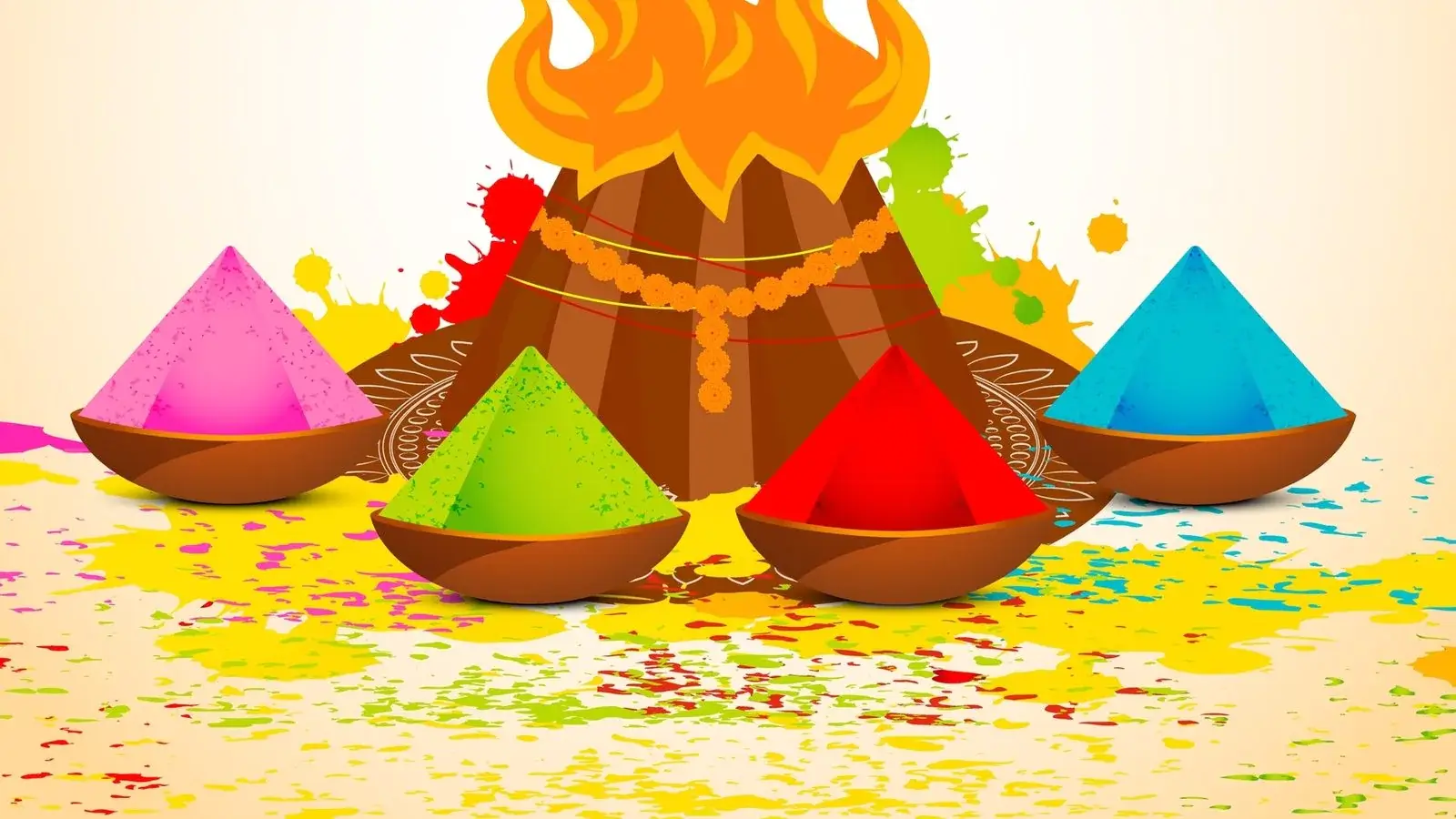Why do we Celebrate Holika Dahan Before Holi? Things Need to Avoid During Holika Dahan

In certain regions of North India, the day before Holi is known as Holika Dahan. Meanwhile, in other parts such as Purvanchal (eastern Uttar Pradesh and western Bihar) as well as the Terai regions of Nepal, it is referred to as Sammat Jaarna. On this day, people gather to light bonfires that symbolize the burning of Holika, the sister of demon king Hiranyakashyap.
This act is believed to symbolize the triumph of good over evil. People throw twigs, dry leaves, and other waste materials into the fire to purify the surroundings and protect themselves from evil. The festival is celebrated with great enthusiasm and devotion, and it is a time for families and friends to come together to celebrate the arrival of spring and embrace the joy and happiness that comes with the season.
Holika Dahan is celebrated before Holi as it marks the triumph of good over evil. The burning of Holika, the demoness who symbolizes evil, represents the destruction of evil forces and the triumph of virtue. By performing Holika Dahan, people seek blessings from the almighty to ward off evil and bring peace, happiness, and prosperity in their lives. Additionally, Holika Dahan is also believed to signify the arrival of spring and the new season of harvest.
How do people celebrate Holika Dahan?
Holika Dahan is a Hindu festival celebrated on the night before the Hindu festival of Holi, which usually falls in February or March. The festival is celebrated with great enthusiasm and devotion, and the celebration can vary depending on the region and community. Here are some common ways people celebrate Holika Dahan:
1. Lighting Bonfires: The main tradition of Holika Dahan is to light bonfires in public spaces or in people’s homes. The bonfire is considered sacred, and people gather around it to perform prayers and rituals.
2. Offering Prayers: People perform prayers and rituals around the bonfire, offering food and other offerings to the fire as a symbol of burning their negative thoughts and actions. They sing hymns, chant mantras, and throw dry leaves, twigs, and waste materials into the fire.
3. Dancing and Singing: After the prayers and rituals are over, people usually feast and sing songs together, celebrating the arrival of spring.
4. Playing with Colors: The next day after Holika Dahan is the festival of Holi, where people play with colored powder and water, dance, sing, and feast.
5. Sharing Sweets: People also distribute sweets and traditional foods to their friends and family during the celebrations.
Holika Dahan is celebrated with great enthusiasm and devotion, with traditions such as lighting bonfires, offering prayers, dancing, and singing. The festival is a time for people to come together, celebrate the triumph of good over evil, welcome spring, and share joy and happiness with their loved ones.
What are the things to avoid on Holika Dahan?
Holika Dahan is an important Hindu festival celebrated with great enthusiasm and devotion. While the festival is a time for people to come together and celebrate, there are a few things to avoid to ensure a safe and respectful celebration. Here are some things to avoid on Holika Dahan:
1. Littering: The bonfire lit on Holika Dahan is considered sacred, and it is important to avoid throwing any non-biodegradable items such as plastics or glass into the fire. Also, make sure to properly dispose of any waste materials, so as not to litter the surrounding area.
2. Alcohol and Drugs: Holika Dahan is a religious festival, and it is important to avoid consuming alcohol or drugs during celebrations. These substances can impair judgment and lead to disrespectful behavior.
3. Offensive Behavior: Holika Dahan is a time for people to come together and celebrate with their friends and family. It is important to avoid any kind of offensive behavior or language that could hurt someone’s sentiments or feelings.
4. Disrespectful Clothing: It is important to dress respectfully and appropriately for the occasion. Avoid wearing revealing or offensive clothing that could be considered disrespectful or inappropriate.






